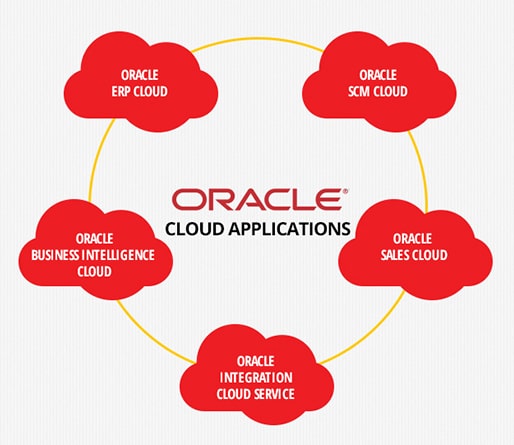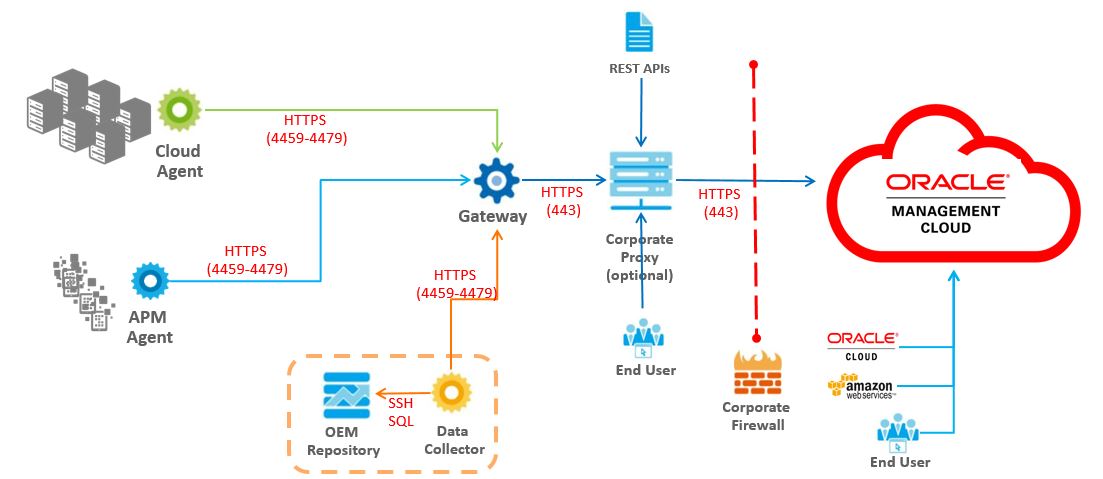Oracle Cloud Application Services: A Brief Overview
Oracle Cloud Application Services is a suite of cloud-based solutions designed to streamline and optimize business operations. These services cater to various aspects of modern organizations, offering a wide range of benefits. By adopting these services, businesses can achieve increased efficiency, flexibility, and cost savings, enabling them to focus on their core competencies and achieve sustainable growth.
The primary advantages of Oracle Cloud Application Services include:
- Efficiency: By automating routine tasks and providing real-time insights, these services help businesses improve their overall productivity and reduce operational costs.
- Flexibility: Oracle Cloud Application Services allow businesses to scale their operations according to their needs, ensuring they can adapt to changing market conditions and customer demands.
- Cost Savings: With a cloud-based solution, businesses can eliminate the need for costly on-premises infrastructure and reduce their total cost of ownership.
- Integration: Oracle Cloud Application Services offer seamless integration with existing systems and applications, ensuring a smooth transition and minimizing disruptions.
- Security: Oracle prioritizes robust security measures, providing businesses with peace of mind and protecting their sensitive data.
- Innovation: Oracle continuously invests in research and development, ensuring businesses have access to the latest technologies and features.
Exploring the Oracle Cloud Application Services Portfolio
Oracle Cloud Application Services offer a wide range of solutions tailored to various business needs. Here is an overview of the primary services:
ERP (Enterprise Resource Planning)
Oracle Cloud ERP provides businesses with a comprehensive solution for managing their financial, procurement, and project management processes. By automating routine tasks and offering real-time insights, Oracle Cloud ERP enables businesses to improve their financial performance and reduce operational costs.
HCM (Human Capital Management)
Oracle Cloud HCM is a unified solution for managing all aspects of human resources, including talent management, workforce management, and payroll. By leveraging Oracle Cloud HCM, businesses can attract and retain top talent, streamline their HR processes, and ensure compliance with labor laws and regulations.
SCM (Supply Chain Management)
Oracle Cloud SCM enables businesses to optimize their supply chain operations by providing end-to-end visibility and control. From demand management and procurement to manufacturing and logistics, Oracle Cloud SCM empowers businesses to make informed decisions, reduce costs, and improve customer satisfaction.
CX (Customer Experience)
Oracle Cloud CX offers a suite of solutions designed to help businesses deliver exceptional customer experiences across all touchpoints. By leveraging Oracle Cloud CX, businesses can engage their customers in meaningful ways, build lasting relationships, and drive growth.
These Oracle Cloud Application Services cater to different business needs, ensuring that organizations of all sizes and industries can benefit from the power of cloud-based solutions. By adopting these services, businesses can streamline their operations, reduce costs, and focus on delivering value to their customers.
Assessing the Advantages of Oracle Cloud Application Services
Oracle Cloud Application Services offer numerous unique selling points that set them apart from competing cloud application services. Here are some key advantages:
Seamless Integration
Oracle Cloud Application Services are designed to integrate seamlessly with existing systems and applications, enabling businesses to create a cohesive and connected technology ecosystem. This integration capability reduces complexity, minimizes disruptions, and ensures a smooth transition to the cloud.
Robust Security
Oracle prioritizes security, offering advanced protection measures to keep businesses’ data and applications safe. With features such as encryption, access controls, and identity management, Oracle Cloud Application Services provide a secure environment for businesses to operate in.
AI-Driven Automation
Oracle Cloud Application Services leverage artificial intelligence and machine learning to automate routine tasks, streamline workflows, and provide real-time insights. This automation enables businesses to improve their efficiency, reduce operational costs, and make informed decisions.
Superior Performance
Oracle Cloud Application Services are built on a high-performance infrastructure, ensuring businesses benefit from rapid processing, quick data retrieval, and minimal downtime. This superior performance results in an enhanced user experience and increased productivity.
Scalability
Oracle Cloud Application Services offer businesses the flexibility to scale their operations according to their needs. This scalability ensures businesses can adapt to changing market conditions and customer demands without worrying about limitations in their technology infrastructure.
Customization and Configuration
Oracle Cloud Application Services provide businesses with the ability to customize and configure their solutions to meet their unique requirements. This flexibility ensures businesses can tailor their cloud applications to their specific needs, enhancing their overall value and effectiveness.
By choosing Oracle Cloud Application Services, businesses can enjoy these advantages and more, positioning themselves for success in an increasingly competitive marketplace.
How to Implement Oracle Cloud Application Services in Your Business
Implementing Oracle Cloud Application Services can significantly improve your business operations. Follow this step-by-step guide to ensure a smooth and successful deployment:
Step 1: Initial Assessment and Planning
Begin by evaluating your current IT infrastructure, business processes, and goals. Identify the areas where Oracle Cloud Application Services can provide the most value and create a detailed implementation plan. Consider factors such as budget, timeline, and resource allocation.
Step 2: Choosing the Right Services
Select the Oracle Cloud Application Services that best align with your business needs. Consider factors such as scalability, customization, and integration requirements. Popular services include Oracle Cloud ERP, HCM, SCM, and CX.
Step 3: Preparing Your Environment
Ensure your existing IT infrastructure is ready for the transition to Oracle Cloud Application Services. This may involve upgrading hardware, software, or network connections. Additionally, prepare your team by providing training and change management support.
Step 4: Configuration and Customization
Configure and customize your Oracle Cloud Application Services to meet your specific business requirements. Leverage the extensive customization options available to streamline workflows, automate processes, and create a seamless user experience.
Step 5: Data Migration
Migrate your data to the new Oracle Cloud Application Services environment. Follow best practices for data migration, such as validating data integrity, ensuring data security, and minimizing downtime.
Step 6: Deployment and Testing
Deploy your Oracle Cloud Application Services and thoroughly test them to ensure they are functioning correctly. Address any issues or bugs before moving to the next phase.
Step 7: User Training and Adoption
Provide training to your team to ensure they can effectively use the new Oracle Cloud Application Services. Encourage user adoption by demonstrating the benefits and value of the new system.
Step 8: Ongoing Maintenance and Support
Regularly maintain and update your Oracle Cloud Application Services to ensure optimal performance and security. Leverage Oracle’s support and resources, such as documentation, training, and customer support, to address any issues or questions that arise.
By following these steps, your business can successfully implement Oracle Cloud Application Services and begin reaping the benefits of increased efficiency, flexibility, and cost savings.
Real-Life Success Stories: Oracle Cloud Application Services in Action
Discover how businesses have successfully implemented Oracle Cloud Application Services to streamline their operations, reduce costs, and improve efficiency. Here, we share two success stories that highlight the challenges faced, solutions implemented, and benefits reaped.
Case Study 1: Global Manufacturing Company
A global manufacturing company sought to modernize its outdated IT infrastructure and improve its supply chain management. By adopting Oracle Cloud SCM, the company achieved the following results:
- End-to-end supply chain visibility, enabling better decision-making and inventory management
- Improved collaboration with suppliers and partners, leading to shorter lead times and increased agility
- Enhanced forecasting and demand planning capabilities, resulting in reduced waste and optimized resource allocation
Case Study 2: Mid-Sized Retail Chain
A mid-sized retail chain wanted to upgrade its customer experience and human capital management systems. By implementing Oracle Cloud CX and HCM, the company experienced the following outcomes:
- A unified view of customer interactions across all touchpoints, facilitating personalized experiences and targeted marketing campaigns
- Streamlined HR processes, from recruitment and onboarding to performance management and benefits administration
- Improved employee engagement and retention, thanks to better training programs and career development opportunities
These success stories demonstrate the transformative power of Oracle Cloud Application Services. By choosing the right services for your business needs and following best practices for implementation, you too can reap the benefits of increased efficiency, flexibility, and cost savings.
Staying Updated: Oracle Cloud Application Services Roadmap and Updates
Oracle is dedicated to innovation and continuous improvement, ensuring its cloud application services remain at the forefront of the industry. By staying informed about the latest updates and features, businesses can leverage the full potential of Oracle Cloud Application Services and maintain a competitive edge.
Oracle Cloud Application Services Roadmap
Oracle’s roadmap for its cloud application services focuses on several key areas, including:
- Expanding AI and machine learning capabilities to automate processes, improve decision-making, and enhance user experiences
- Enhancing integration and interoperability between different Oracle Cloud Application Services and third-party solutions
- Investing in security and data privacy to protect user information and ensure regulatory compliance
- Streamlining deployment, migration, and management processes to simplify implementation and maintenance
Latest Updates
Oracle regularly releases updates and new features for its cloud application services. Some recent updates include:
- Enhanced chatbot and voice assistant capabilities for Oracle Cloud CX, enabling more personalized customer interactions
- Expanded supply chain visibility features in Oracle Cloud SCM, allowing businesses to monitor and manage their supply networks in real-time
- New financial reporting and analytics tools in Oracle Cloud ERP, providing users with deeper insights into their financial performance
- Improved HR workforce management features in Oracle Cloud HCM, enabling organizations to better manage their workforce and optimize resources
To stay updated on the latest Oracle Cloud Application Services updates and features, businesses can follow Oracle’s official blogs, attend webinars and events, and participate in user groups and forums. By leveraging these resources, businesses can ensure they are making the most of their Oracle Cloud Application Services investment and staying ahead in their respective industries.
Navigating Oracle Cloud Application Services Support and Resources
Oracle offers a wide range of support and resources to help businesses successfully implement and maintain their cloud application services. Leveraging these resources ensures a smooth and successful implementation, maximizing the value of your investment in Oracle Cloud Application Services.
Documentation
Oracle provides extensive documentation for its cloud application services, covering various topics such as installation, configuration, and troubleshooting. This documentation serves as a comprehensive guide, helping users understand and effectively utilize the features and functionalities of Oracle Cloud Application Services.
Training
Oracle offers a variety of training programs, including online courses, instructor-led training, and certification programs. These training opportunities enable users to enhance their skills and knowledge, ensuring they can fully leverage the capabilities of Oracle Cloud Application Services.
Customer Support
Oracle’s customer support team is available 24/7 to assist users with any issues or questions they may have. With various support options, such as phone, email, and live chat, businesses can quickly resolve any challenges they encounter during the implementation and maintenance of their Oracle Cloud Application Services.
User Groups and Forums
Oracle hosts user groups and forums, allowing users to connect, share best practices, and learn from one another. Participating in these communities provides valuable insights and networking opportunities, fostering a collaborative environment that benefits all users of Oracle Cloud Application Services.
By taking advantage of these support and resources, businesses can ensure a successful implementation of Oracle Cloud Application Services, overcome potential challenges, and continuously optimize their operations to achieve their desired outcomes.
Making an Informed Decision: Choosing the Right Oracle Cloud Application Services for Your Business
Selecting the most suitable Oracle Cloud Application Services for your business requires careful consideration of various factors. By evaluating your unique needs, budget, and objectives, you can make an informed decision that drives long-term success.
Assessing Your Business Needs
Begin by identifying the specific challenges and pain points within your organization. For instance, if you struggle with managing financial data, Oracle Cloud ERP might be an ideal solution. If talent management is a priority, consider Oracle Cloud HCM. Aligning your business needs with the appropriate Oracle Cloud Application Services ensures a more effective and efficient implementation.
Budget Considerations
Oracle Cloud Application Services are available at various price points, making it essential to establish a budget before making a decision. Remember to factor in the costs of implementation, training, and ongoing maintenance. While Oracle Cloud Application Services offer significant cost savings in the long run, it’s crucial to ensure the initial investment aligns with your financial resources.
Scalability and Integration Requirements
Consider your organization’s growth potential and the need for scalability when choosing Oracle Cloud Application Services. Additionally, evaluate the ease of integration with your existing systems and applications. Seamless integration ensures a more cohesive and efficient technology ecosystem, reducing complexity and potential disruptions.
Recommendations Based on Scenarios
- Small to Medium-Sized Businesses: Oracle Cloud Application Services such as Oracle Cloud ERP, HCM, and CX are excellent options for SMBs looking to streamline operations, improve efficiency, and reduce costs.
- Enterprise Organizations: Larger organizations may benefit from a more comprehensive suite of Oracle Cloud Application Services, including ERP, HCM, SCM, and CX, to manage complex operations and diverse business needs.
- Industry-Specific Solutions: Oracle Cloud Application Services cater to various industries, such as manufacturing, retail, and healthcare. Research industry-specific solutions to ensure the selected services align with your organization’s requirements.
By carefully evaluating your business needs, budget, scalability, and integration requirements, you can choose the most suitable Oracle Cloud Application Services for your organization. This informed decision-making process sets the stage for a successful implementation, driving long-term growth and efficiency.







